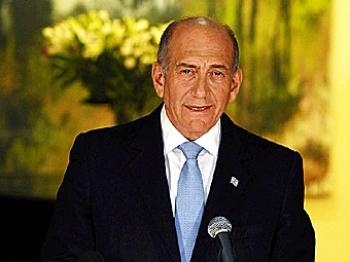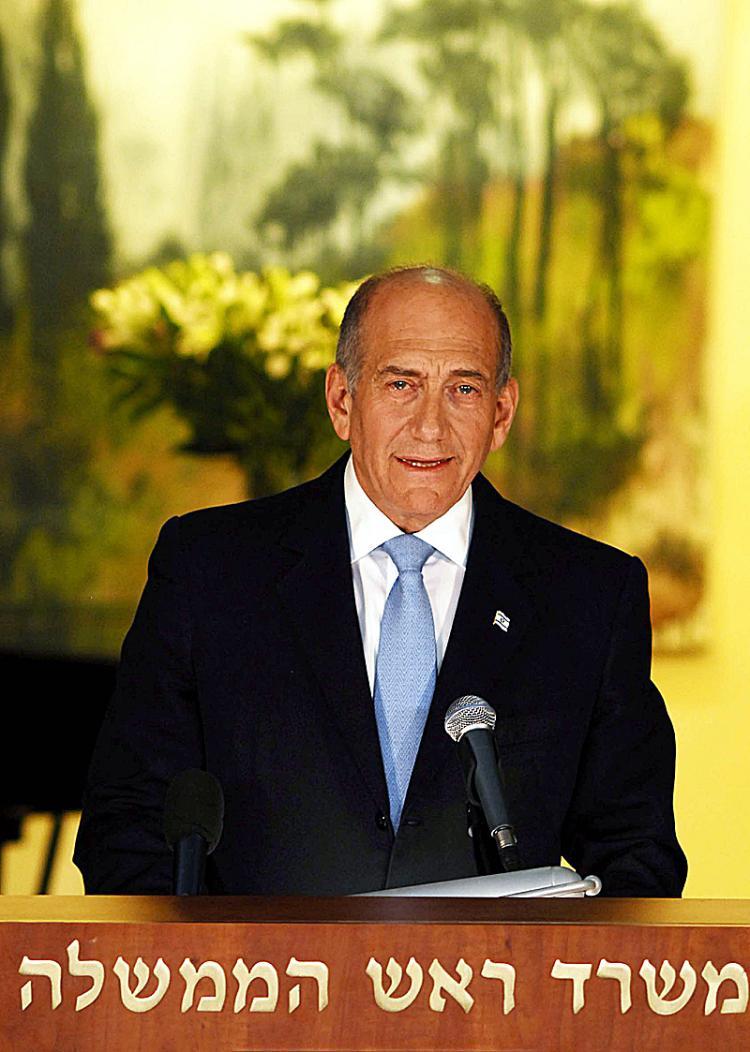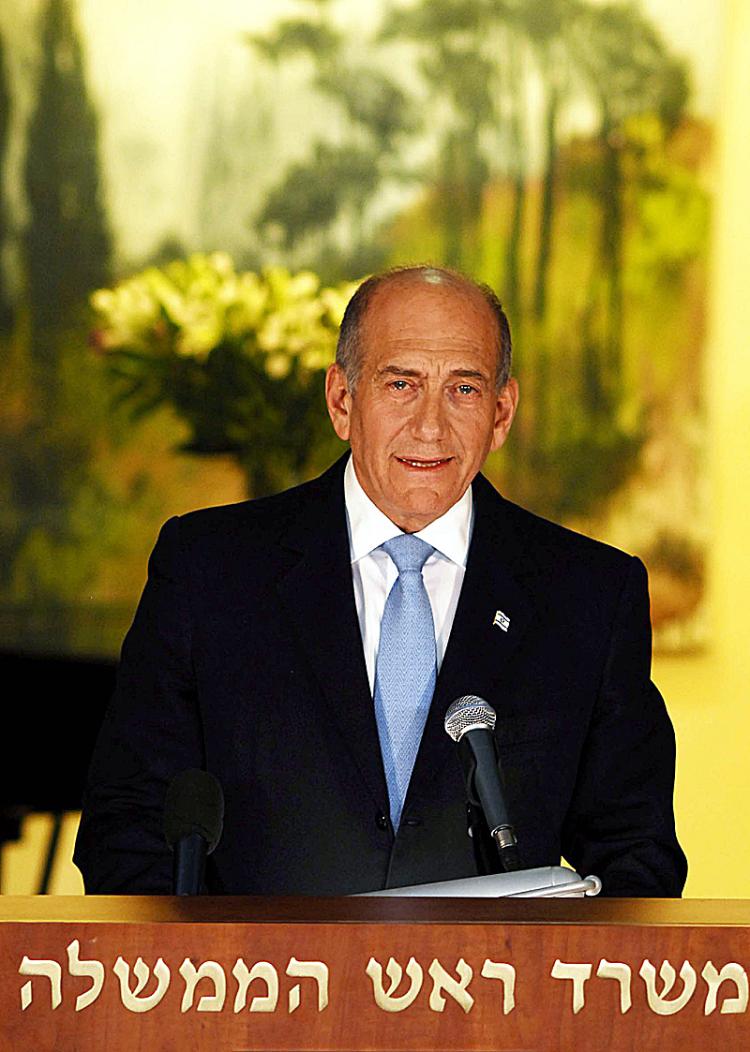Olmert Stepping Down as Israeli PM
Israeli PM Olmert announced that he will resign as Prime Minister after his Kadima Party elects a successor.

Israeli Prime Minister Ehud Olmert announces his intention to resign as Prime Minister of Israel on July 30, 2008 in Jerusalem, Israel. Avi Ohayon/GPO/Getty Images
|Updated:





